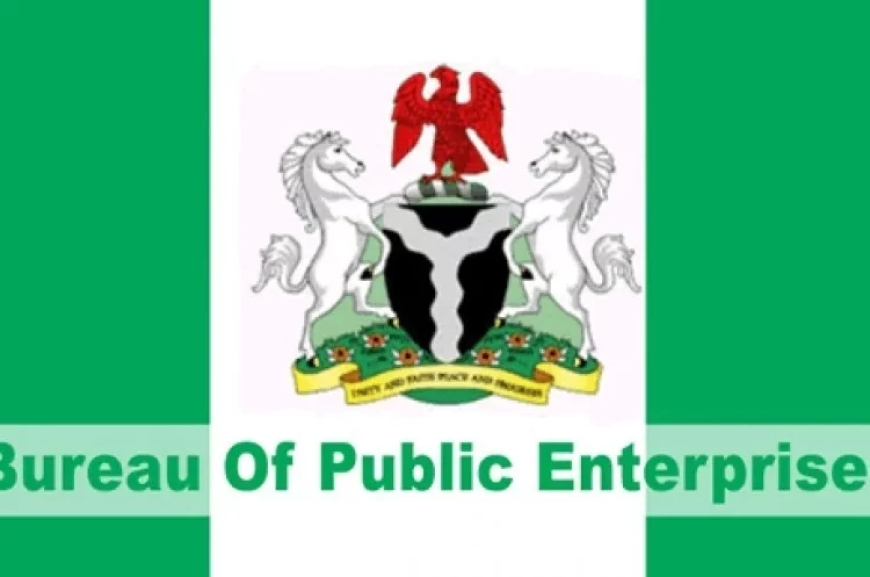BPE Plans Listing 2 DisCos, GenCo On Stock Exchange

The Bureau of Public Enterprises (BPE) has announced plans to list two electricity distribution companies (DisCos) and one generation company (GenCo) on the Nigerian Stock Exchange through Initial Public Offers (IPOs).
The agency’s director general, Ayodeji Gbeleyi, disclosed this during a media briefing in Abuja yesterday. He explained that the move forms part of the government’s efforts to deepen investment in the power sector and broaden ownership of critical assets.
“We see the sector as a good candidate for IPOs on the Nigerian exchange, and work is currently ongoing in that direction,” Gbeleyi stated. He, however, declined to name the firms being considered, citing transaction confidentiality.
Pressed by journalists to identify the companies, he maintained that disclosure at this stage could unsettle workers, investors, and other stakeholders. “Out of the 11 DisCos, we cannot, for now, specify which two are being prepared for listing. The same goes for the GenCo. Confidentiality must be maintained to avoid unnecessary apprehension,” he said.
The BPE explained that the DisCos are owned 60 per cent by private investors and 40 per cent by the federal government, adding that the government is only listing a part of its ownership in the market.
“The share percentage to be brought to the market is a percentage from the 40 per cent owned by the government,” he stated, adding that even so, private companies are also quoted on the stock exchange.
He said not all Gencos are owned by private investors. “Most Gencos are still owned by the government but only in concession to the private investors operating them currently, and they pay concession fees and royalties to the government on a yearly basis for the tenure of the concession,” the BPE said in a clarification to the messages sent by this newspaper.
The organisation also stated that the identity of the Disco or Genco proposed to be listed on the stock exchange is not for public disclosure until all the processes are completed.
Beyond the IPO plans, Gbeleyi revealed that loan agreements for shareholders of 10 DisCos had already been executed, with disbursement scheduled to begin shortly.
On the stalled privatisation of five GenCos, the BPE boss explained that the transaction was suspended due to exchange rate volatility. He noted that when the process began in 2021, the naira was at about N450 to the dollar, but subsequent depreciation to over N1,600 distorted the underlying financial models. “Government has, therefore, kept the transaction in abeyance while monitoring developments,” he said.
Due to inadequate transmission infrastructure, the DG also noted that eligible customer regulations had not gained traction among GenCos.
“It is not enough to have an eligible customer. You must also be able to wheel power from where it is generated to where it is needed. For example, power produced in Zungeru must be transmitted reliably to Egbin or elsewhere before it can be sold,” he explained.
Providing updates on sector ownership, Gbeleyi said the core investors of four DisCos remain unchanged, while seven have undergone restructuring. He recalled that the unbundling of the Transmission Company of Nigeria (TCN) led to the creation of the Nigerian Independent System Operator (NISO), which now supports efficiency and market independence.
On metering, he reported significant progress: from just 403,255 meters in 2013, installations rose to over 6.4 million by March 31, 2025. Of this, 3.2 million were provided under the $500 million Distribution Sector Recovery Programme (DISREP), while 2.5 million came from the Presidential Metering Initiative.
Turning to refineries, the BPE DG said no decision has been finalised on whether to privatise, commercialise, or concession them. “Nothing is cast in stone. These are financial model-driven decisions. We aim to stop the bleeding and leakages, and we are open to options ranging from concessioning to adopting models similar to Nigeria LNG,” he added.
He further disclosed that the government projects N312.3 billion in revenue from asset sales, privatisations, or concessions in 2025. According to him, these efforts align with President Bola Tinubu’s Renewed Hope Agenda, which targets a $1 trillion economy and creates 50 million jobs.
Gbeleyi noted that Nigeria’s $2.3 trillion infrastructure gap underscores the urgency of strategic investments. He said the country will need to spend an average of N100 billion annually over the next 23 years to bridge the gap, with current infrastructure stock-to-GDP at about 35 per cent, compared to 70 per cent in larger economies.
“We are collaborating with the Ministry of Budget and Economic Planning and other stakeholders to develop a pipeline of catalytic PPP projects cutting across airports, roads, rail, inland waterways, seaports, and agriculture,” he explained.
Reviewing past activities, the BPE DG said the bureau concluded 243 transactions in 2023 and highlighted improvements in the power sector since privatisation.
He noted that average generation capacity rose from 3,432 megawatts in 2013 to 5,366 megawatts in the first quarter of 2025, boosted by increased output from plants such as Ughelli, Geregu, Egbin, and Kainji, alongside the injection of 700 megawatts from Zungeru.
“The sector today is more liquid than it was at the point of privatisation, even as government subsidies have reduced significantly,” he stated.









